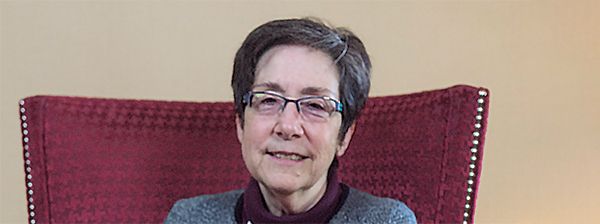
Risa Lieberwitz is the General Counsel for the American Association of University Professors (AAUP). She is also a professor of Labor and Employment Law at the School of Industrial and Labor Relations at Cornell University. In April, she spoke to the CAUT Council about legislative threats to academic freedom in the U.S.
There has been a dramatic increase in partisan political attempts in the U.S. to portray teaching about slavery and racism as a social harm. What's going on?
What's going on is very much a legacy of the Trump administration. There have been political, including legislative attempts through bills and statutes, to ban certain types of curricula or to restrict the way in which teaching can take place—in particular, about issues of social inequality. That includes the history and current realities of racism in the United States including systemic racial inequality and gender inequality.
With the Biden Administration, the shifts have been made to state levels where conservative state legislators have either proposed bills or enacted laws that impose these kinds of restrictions. Some of the laws are known as "divisive concept laws." The thinking is that teaching about racism divides students from faculty, it divides people from each other; students should not be made uncomfortable in hearing about issues of racism.
Why are so many politicians also trying to restrict teaching about Israel?
In Florida, a statute was passed in 2019 about the definitions of antisemitism. That provision in the Florida law defined antisemitism as not only regarding actual antisemitic statements or actions that are based on hatred of Jews but conflates real antisemitism with political criticisms of the state of Israel and Zionism.
These two trends—statutes dealing with teaching about race as well as those addressing issues of political criticism of the state of Israel and Zionism—have in common an attempt by states to impose this political and ideological orthodoxy on education. It undermines our ability to have full academic freedom and education that serves the common good.
How is AAUP working to address these legislative attacks on academic freedom?
AAUP has put out public statements that oppose these pieces of state legislation that restrict teaching about critical race theory or about other curriculum about race. We've joined with other unions and civil rights organizations to look more broadly at the ways in which we can push back—through litigation, filing briefs to the courts as well as through work that we can do at the legislative levels, both federal and state, to join forces to oppose these laws as well as to promote a positive agenda for education for the common good.
AAUP recently took the unusual step of censoring the university system of Georgia for its decision to remove tenure. What is the link between the attacks on teaching critical race theory and the attack on tenure?
It’s very important for us to see that they're interrelated. To have education for the common good, we must have academic freedom for faculty to use their expertise to teach in ways that provide a high quality, honest education. We need job security so that we are not always at the mercy of politicians who want to intrude in universities or university administrations who don't like what we're saying.
Attacks [against us] are being made not only through these laws that define prohibitions on teaching on certain subjects, but also through state systems that are attacking tenure itself. One of those examples is the state of Georgia, where the response from the legislators has been to really undermine and to virtually eliminate the realities of tenure. AAUP censured the system of the state of Georgia because this was really a wholesale attack on faculty ability to exercise our independence and our academic freedom.
When the University of Texas at Austin faculty council put out a statement affirming rights to teach with academic freedom about issues of race, the Lieutenant Governor of Texas came back within days with an attack on tenure and linked that to the political agenda to restrict teaching about race. The fight against these pieces of state legislation must be seen as part and parcel of the fight to protect tenure.
How do academics in Canada protect themselves from the challenges you face in the U.S.?
Organizing is always the key. Certainly, I can tell you that we admire the CAUT for the solidarity that you've shown with regard to organizing, with regard to the role of the unions in representing labor in higher education and how important that is.
Labour organizing is central to solidarity so that we can not only fight back against the problems that we're confronting today, but also so that we can look at what may be coming down the pike and we can join to say, "No, this will not happen." As faculty who are part of the labour movement, we need to present a solid front when university administrations and politicians seek to intervene in our academic freedom.